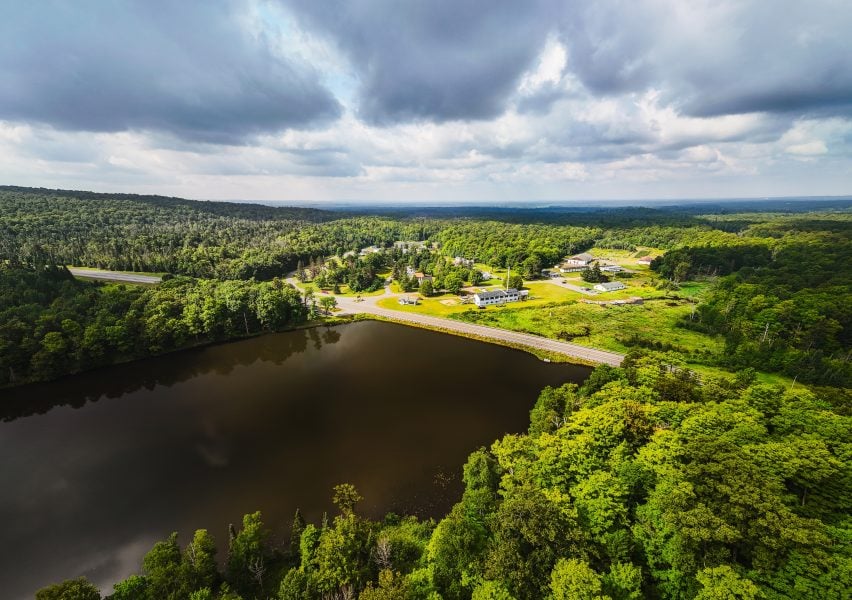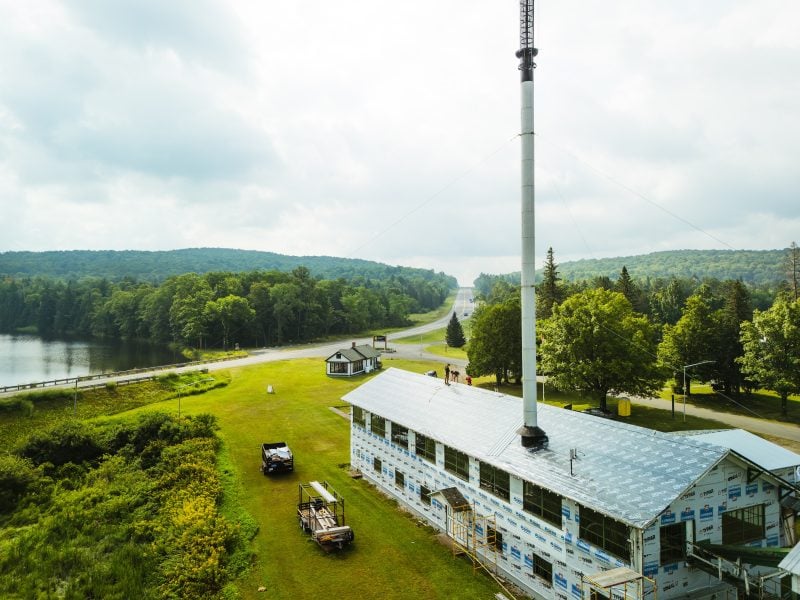
The historic Ford Center Sawmill at Michigan Tech’s Ford Forest and Center is getting a facelift. One of three original Ford-operated sawmills in Baraga County, Michigan, the circa 1936 sawmill is receiving all-new exterior siding from Louisiana Pacific Building Solutions (LP).
College of Forest Resources and Environmental Science Dean David Flaspohler said the siding project, now underway and expected to be completed by the end of summer, is made possible through the generous support of LP, a local donor, and has a direct connection to Michigan Tech research.
Tech played a pivotal role in the development of the LP® SmartSide® Trim & Siding products being used to re-clad the sawmill. Flaspohler said the remarkable convergence of elements that led to the project illustrate Tech’s ’s long-time commitment to advance sustainable technologies and industries through the critical contributions of the university’s faculty and research partnerships.
“The wood science research that produced the durable LP SmartSide product originated in the College of Forest Resources and Environmental Science in the early 1990s,” said Flaspohler. “This is another example of how investments in basic and applied research pay off for society and our economy through new and innovative technologies and products.”

At the heart of the innovation lies the work of Michigan Tech Professor Emeriti Peter Laks. He developed the concept of using zinc borate (ZB) wood preservatives in conjunction with methylene diphenyl diisocyanate (MDI) adhesive for manufacturing durable, exterior wood-based composites. The approach, first explored by Laks at Tech in the late 1980s and early 1990s, provided a transformative solution for creating siding products designed to withstand a variety of weather conditions, resist fungal decay, and offer long-lasting performance. The Ford Center’s new siding is primarily made from wood strands sourced from aspen trees. The strands are treated with MDI, ZB, and waxes, then bonded with a resin-saturated overlay during the curing process for enhanced durability and protection.
Key figures in the product’s development also include former LP team member Lance Olson, a senior manager of product technology at the time the siding was being developed.
“The durability testing was crucial,” said Olson. “We had to quantify the depletion rates of the preservatives to ensure we could offer a 50-year warranty on LP SmartSide products. Peter Laks and the team at Michigan Tech were instrumental in providing the data we needed to back up the product’s long-term performance.”
By fostering an environment where groundbreaking ideas can flourish and by cultivating partnerships with leading companies, Michigan Tech continues to shape the future of sustainable technologies. As Tech looks to the future, its role as an innovation leader ensures that the next breakthrough is just around the corner.
In the meantime, Ford Center and Forest students, researchers, visitors, and passing motorists will be able to enjoy the preservation of an iconic regional landmark.
About the College of Forest Resources and Environmental Science
Michigan Tech’s College of Forest Resources and Environmental Science brings students, faculty, and researchers together to measure, map, model, analyze, and deploy solutions. The College offers six bachelor’s degrees in forestry, wildlife ecology and conservation, applied ecology and environmental science, natural resources management, sustainable bioproducts, and environmental science and sustainability. We offer graduate degrees in applied ecology, forest ecology and management, forest molecular genetics and biotechnology, and forest science.
Questions? Contact us at forest@mtu.edu. Follow us on Facebook, Instagram, and LinkedIn for the latest happenings.